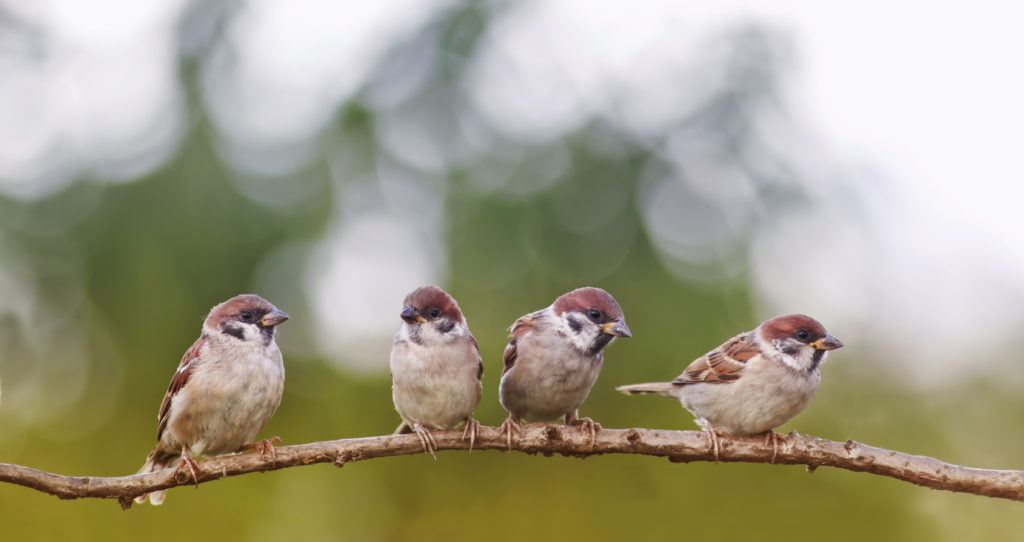Quick Hits
Daily brief research updates from the cognitive sciences

Waking up to an early morning chorus of birdsong is nice. No doubt about that. But the benefits could be much more significant than just a fleeting feeling of positivity (and followed by a groan to get out of bed by some).
Researchers at Kings College London have just reported on the results of a study that tracked people’s exposure to birdsong and the resulting mental health impact – with some very positive results.
Hammoud et al. tracked 1’292 participants over three years who completed an impressive 26’856 assessments. They used an app that asked them three times a time whether they could hear birdsong and then followed up with questions on mental health.
What did they find?
They found that seeing or hearing birds was associated with an improvement in wellbeing and that this can last up to eight hours. Not bad for a bit of birdsong. What’s more they also found that this also improved wellbeing in those suffering from depression.
This supports plenty of other research into the benefits of nature and specifically of just birdsong. I reported on the positive effects of biodiversity and birdsong here. But these researchers were also able to account for co-occurring other environmental factors such as seeing tress – we also know greenspace has a positive benefit – and found that birdsong alone could account for positive benefits.
So, that’s all good news – surprising and effective method to improve mental wellbeing – so open the windows and listen to the birds. It will do you good.

Andy Habermacher
Andy is author of leading brains Review, Neuroleadership, and multiple other books. He has been intensively involved in writing and research into neuroleadership and is considered one of Europe’s leading experts. He is also a well-known public speaker, speaking on the brain and human behaviour.
Andy is also a masters athlete (middle distance running) and competes regularly at international competitions (and holds a few national records in his age category).
References
Ryan Hammoud, Stefania Tognin, Lucie Burgess, Nicol Bergou, Michael Smythe, Johanna Gibbons, Neil Davidson, Alia Afifi, Ioannis Bakolis, Andrea Mechelli.
Smartphone-based ecological momentary assessment reveals mental health benefits of birdlife.
Scientific Reports, 2022; 12 (1)
DOI: 10.1038/s41598-022-20207-6
More Quick Hits
When Cognitive Games Do Make You Smarter
Quick HitsDaily brief research updates from the cognitive sciences ognitive games have been around for many years now – the first wave of popularity came with Nintendo’s “brain jogging” almost two decades ago now. These games have claimed that they...
How Walking Makes Some People “Super Taskers”
Quick HitsDaily brief research updates from the cognitive sciences hose of you who have followed my writing will know that I have reported regularly on the amazing benefits of exercise and walking on the brain, body, and cognition. However, though...
Older People are Better at Responding to Distress
Quick HitsDaily brief research updates from the cognitive sciences e may have some cliched ideas of older people like the grumpy or angry old man, or woman (but it is often a man). However, research continually shows the opposite. Namely that...
Guided Play Highly Effective for Learning in Children
Quick HitsDaily brief research updates from the cognitive sciences ood news for some and bad news for traditionalists in education. Some believe that starting education early and using classical and traditional learning activities is the best way...
Childhood Fitness Improves Mid-Life Cognition
Quick HitsDaily brief research updates from the cognitive sciences always find these long-term studies fascinating. Imagine launching study and not knowing what the outcomes will be for another 30 years! This is precisely what this study did. It...
The Truth of “Work Hard, Play Hard”
Quick HitsDaily brief research updates from the cognitive sciences e all know the phrase “work hard, play hard” and this drew my attention when I stumbled across some research actually looking into this - and whether this is a good thing or bad...






